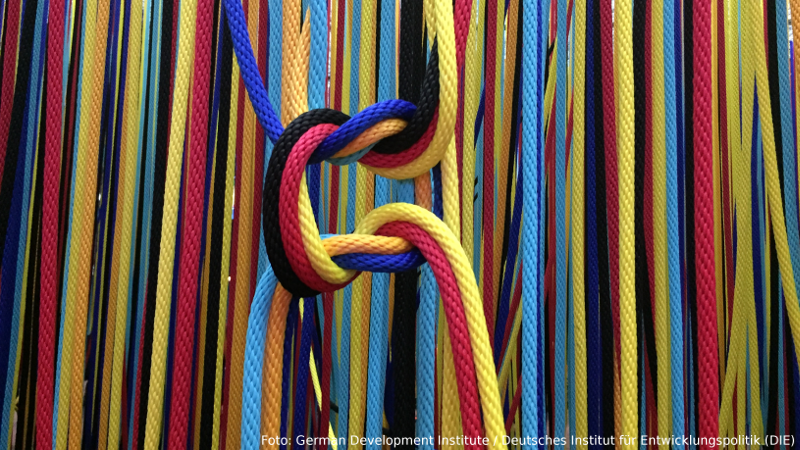
The recently held G20 Summit in Hamburg has set high hopes for the G20 process in terms of being inclusive, effective and result-oriented. The fact that trade, investment, migration, terrorism and many other priorities including excess capacity in the steel sector could be incorporated with specific action is testimony to collective commitment for a better world.
One of the key challenges that global economy has been facing for sometimes is of surplus resources in search of a destination for optimum returns. According to the World Bank President, this stands close to $2-3 trillion. The dead weight of these surpluses led to several structural constraints in the system in last few years. Search for options that could facilitate investments is very much there in the minds of several global players. Fresh efforts in this direction are being made to bridge the gap that is there.
The G20 Africa Partnership
The German G-20 Presidency tried to address this issue with enhanced focus on strengthening cooperation with Africa. Before the Summit, the German Presidency emphasised on evolving frameworks for protection of investments so that genuine investors should not be afraid of risks. The frameworks in the form of ‘Compacts with Africa’ (CWA) were actually trying to fit in the rule-based structures.
Chancellor Merkel had invited the heads of state and government of African partner countries to explore new investment opportunities on the African continent and reach agreement on how to create new incentives for more private investment, sustainable investment in public infrastructure and economic participation through employment. Further, she had clarified that the proposed compacts were not ‘for’ Africa but ‘with’ Africa. The finance ministers of Côte d’Ivoire, Ethiopia, Ghana, Morocco, Rwanda, Senegal and Tunisia indicated their interest in joining the compacts.
Within Germany, Merkel explained the support programme from the stand point of addressing root causes of migration. The very reason for possible success might itself become a reason for its failure as a quick fix solution work only partially. Development outcomes depend on several other factors like education, local development connect, etc. While these factors are complex and broad, the CwAs are also being described as narrow in their focus. However, at this point CWAs propose to cover three major areas of engagement, viz. macro-economic and regulatory coordination. It is a direct response to indiscreet investments from China, where impact on local development is a least consideration. In that sense CWAs are a techno-economic solution to a larger challenge the West is facing in Africa.
Challenges for Africa
Africa has challenges at different levels. The most common ones are what South Africa is facing these days where Fitch Ratings and Standard & Poor’s both have recently downgraded the credit rating to junk status. The continued political uncertainty and indecision in the country has led to this ranking. Removal of Finance Minister Pravin Gordhan has triggered a major opposition to President Zuma. The political challenges themselves may be overlooked for some time but the major issue is the absence of predictability and a rule-based Systems.
The proposal for the CWA reflects this need. This provision would help address sectors like infrastructure (e.g. roads, ports and electric grids, etc.) which hitherto were left for governments or donors. The new modality would enable several (Western) and other investors to safely move in and invest. The annual investment gap in Africa is estimated to be close to $95 billion. Other studies estimate that $50 billion leave the continent as part of illicit financial outflows. With this the indebtedness has also multiplied. African governments spent $21 billion a year on debt repayment.
The idea of compact matches the new mood that is emerging in Africa. At the G20 Africa Summit in Berlin, the Ghanaian President Nana Addo Dankwa Akufo-Addo challenged African leaders to depart from the dependency on development assistance and move forward for quality economic activities which may include more efforts with raw materials and eventually evolving value-added economies that provide jobs, build strong middle-class societies and lift the masses out of poverty.
Possible Role for India
Indian Finance Minister Arun Jaitley had surprised many at a meeting with the African Development Bank (AfDB) at Gandhinagar in Jun 2017, when he informed that India’s share of announced greenfield projects grew from 3.3 per cent between 2003 and 08 to 6.1 per cent between 2009 and 15. In the same period, the greenfield investment from China decreased from 4.9 per cent to 3.3 per cent. India’s cumulative FDI in Africa stood at $15 billion in 2014.
What are the policy choices for India? India has a great potential to play an important role in supporting investments. First, India’s capacity and experience in managing and running key financial institutions would be of great relevance in this regard. Almost all the African governments are interested in building partnerships to build up and strengthening financial institutions. Coming from similar economic and social context, India may bring forward experience of RBI and SEBI, apart from other key financial institutions.
Second, at the Addis Ababa conference in 2015 on development finance, India raised key issues fighting tax evasion, murky systems of tax havens and shell companies, which are pumping money out of Africa. India’s Prime Minister Modi has expressed concerns on this issue on numerous occasions. The African Union’s High Level Panel on Illicit Flows, chaired by former South African President Thabo Mbeki, Africa has also raised key issues in this respect.


Schreibe einen Kommentar